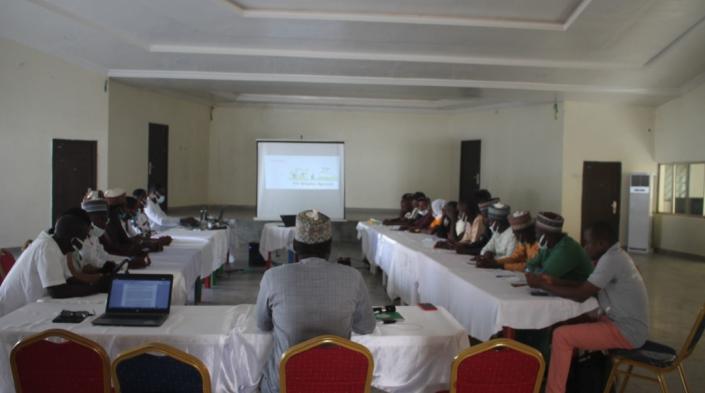
By CITAD
Published onPage last updated on
This article was originally published on the website of APC member organisation Centre for Information Technology and Development (CITAD). CITAD is running the first Nigerian School of Community Network from 6 December. Members of rural communities will be discussing for five days how to create and manage community networks, as an alternative to bridge access gaps in the country.
Networking is a problem in rural areas and developing countries, where people do not have access to adequate telecommunications in their areas. That is why the Centre for Information Technology and Development (CITAD) has organised an initiative to provide training that will ensure that communities have the knowledge and tools they need to develop their own connectivity networks. The initiative was co-sponsored by the Association for Progressive Communications (APC) and supported by the Foreign Commonwealth & Development Office (FCDO).
Today, 6 December, CITAD launched the Nigerian School of Community Networks for some of the selected members of the rural community to be educated and encouraged on how to create and manage the network. This is the first school of its kind in Nigeria and will provide an opportunity to meet and train people from rural areas on such issues. The school is currently being held in Kaduna-Nigeria and will last for five days.
The director of CITAD, Y. Z. Yau, welcomed the participants and began by outlining the goals and nature of the program. He went on to explain why the seven communities in Nigeria were selected, including Jama’are and Itas in Bauchi State and Pasepa, Laileyin Gwari, Tugan Ashere, and Dakwa in the Federal Capital Territory of Abuja.
He further commended the members of the advisory committee of the program and those who attended the inauguration of the school physically and virtually and wished them well.
In a welcome address, Olusola Teniola of the Alliance for Affordable Internet said CITAD should be commended for its commitment and stressed the importance of such programs in other communities or inaccessible areas.
In his own welcome address, Mr. Iseyin Johnson of Fantsuam Foundation traced the origins of the program to the Kafanchan area of Kaduna State in 2001, which has resulted in its production across the country. Kazanka Dada Comfort, also from Fantsuam Foundation, commended CITAD for its tireless efforts to promote technology in the community.
Among those who delivered welcome messages was Edith Udeagu, who encouraged the participants to focus and open their ears, and ask questions about things they did not understand.
Dr. Yusuf Abdulqadir opened the school with information on spectrum and its distribution. He explained how spectrum is allocated in the world, and what factors are considered (economic, developmental status) before it is allocated. Participants asked questions about spectrum and other topics related to it.
The keynote address was given by the director of Galaxy (the Nigeria backbone network service provider), who was represented by deputy director Abdul-Malik Sulaiman. Also in attendance were Sulaiman Ibrahim from the National Orientation Agency (NOA) and Dr. Sanah Abdullahi Mu’az, who led the school today.
.jpeg)
Photos: CITAD
The school is supported by the initiative “Supporting Community-led Approaches to Addressing the Digital Divide”, a project implemented by APC and Rhizomatica and supported by the UK Government’s Digital Access Programme.


